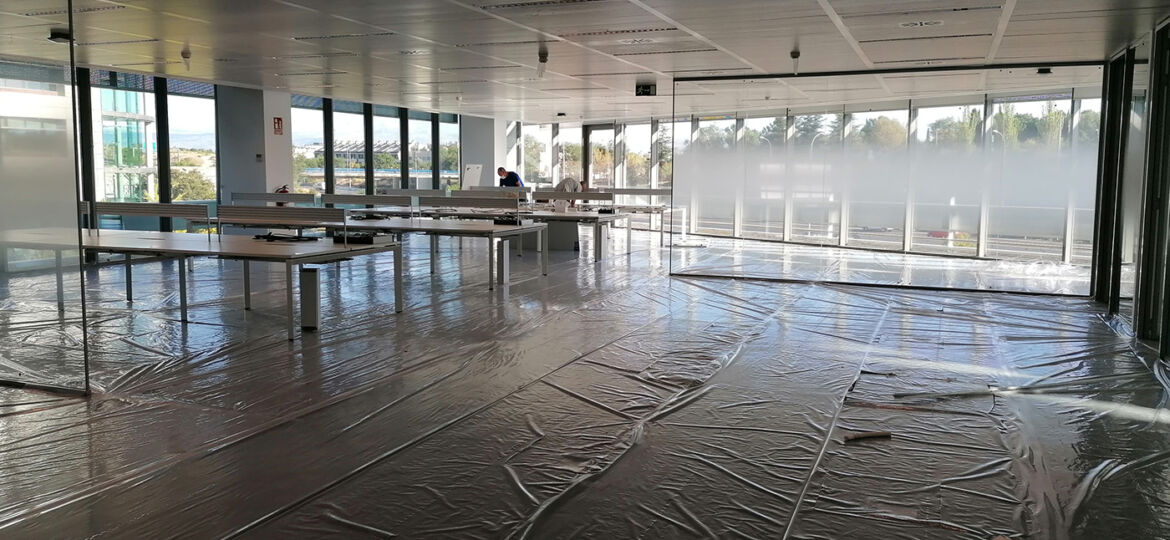Transparency is a fundamental value in any company as it allows setting up a relationship of trust with clients and other stakeholders, such as partners, shareholders, employees, or suppliers.
In the construction sector, transparency becomes even more critical due to the complexity of processes, the lack of standardization in presenting information, and the involvement of multiple parties in projects. Transparency and market knowledge make clients feel secure in making significant transformation decisions, such as constructing a new space or renovating an existing one.
On one hand, clients have the right to know how their money and time are being invested. On the other hand, having access to real-time project status improves its quality, as it enables the identification and correction of any potential issues, avoiding cost overruns and delays. The client hires a service that includes quality and technical ability, and that is what the construction company should provide.
Often, construction has been considered an opaque activity, either due to certain actors’ practices or the fact that projects were managed manually with paper. Also, the lack of investment in marketing to foster client loyalty and build long-term relationships has not helped. However, this feeling has been changing in recent years, thanks to increased regulations, companies’ awareness of their environmental and social impact, technological advancements, and their gradual adoption in the sector. Though there is still progress to be made.
Open Books and Certifications
In the first case, several measures can be implemented to progress in this matter, from using drones and surveillance cameras to watch the progress of works to fostering a culture of honesty among employees.
 |
 |
 |
At Cador, we work under an open-book policy. The client has the possibility of real-time access to offers and contracts and can always count on a single point of contact whenever needed.
Transparency in our company has always been one of our pillars, and since 2021, we have also embraced the principles of the UN Global Compact, where transparency is a key aspect of the ESG (Environment, Sustainability, and Governance) approach.
Additionally, we have a Quality department to attest to our way of operating. The certifications we have been awarded (ISO 9001, 14001, 45001), which we renew periodically, help show our firm commitment reliably.
Communicating Transparency
Transparency is linked to brand positioning. Communicating it is essential for keeping and attracting clients, talent, suppliers, etc. Therefore, we should use all communication channels available to us, both internal (intranet, newsletter, etc.) and external (website, blog, social media, email, press, etc.).
In terms of strategies, we recommend content marketing, as it allows constant communication of valuable and relevant information, addressing clients’ concerns and questions, showing the company’s expertise and knowledge, while improving the company’s visibility in search engines.
What to communicate? Everything. Open and let people get to know us thoroughly. In our case:
- We share our history (43 years supply a wealth of experiences).
- We proudly present our values (much more than just transparency).
- We introduce each team member (we are like a family).
- We reveal our partners and suppliers (with whom we have a close relationship).
- We highlight our projects (as images speak volumes).
- We take pride in our way of working (our quality certifications have been discussed).
- We share what our clients say about us (nothing is a better endorsement).
- We show our processes (because, although it may seem like magic, it is not).
Pieces can be created in various formats: photos of ongoing projects, videos with client testimonials, eBooks or whitepapers reflecting our expertise… but what matters is that the content is useful and transparent.
From our perspective at Cador, only by doing so can we continue building the trust clients have been placing in our company for decades. We are confident that construction companies that adopt sustainable and ethical practices and communicate them openly and effectively will have a significant advantage in today’s competitive market.
You may be interested in:


